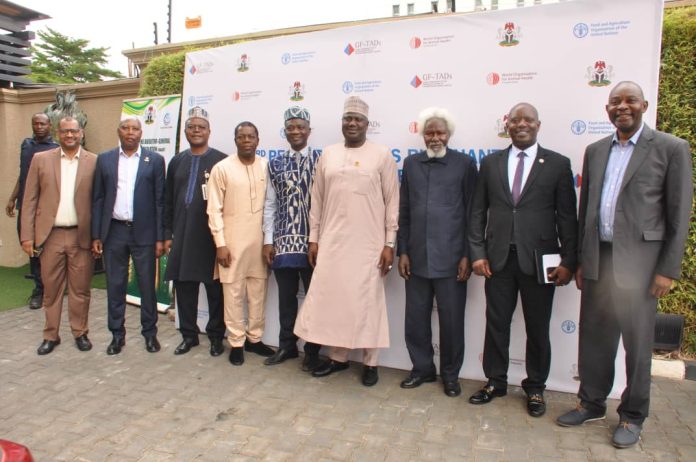The Federal Government says it is determined to remove all impediments to the attainment of food security for Nigerians. The Minister of State for Agriculture and Food Security, Dr. Aliyu Abdullahi disclosed this at a recent meeting with development partners in the Livestock industry to work out ways to control and eradicate Peste Des Petits Ruminants (PPR) in Nigeria.
Speaking during the 3rd PPR Roadmap and Blueprint Meeting for West African Countries, held in Abuja recently, the Minister said that PPR also known as sheep and goat plague, is a highly contagious viral disease that affects small ruminants causing significant economic losses and threatening the livelihoods of millions of rural families in West Africa.
He noted that the impact of PPR extends beyond animal health, affecting food security, economic stability, and the overall well-being of our communities and the most vulnerable in society.
The Minister pointed out that the production, trade, and marketing of sheep and goats were seriously constrained by the continuous presence of PPR, which limits its productivity and access to markets.
He stressed that the eradication of PPR and other trans-boundary Animal Diseases (TADs) is a critical component of the present Administration, adding that eliminating the disease will not only protect our livestock but will also empower our rural communities and contribute to the nation’s economic resilience.
The Minister noted that “it is on record that since the inception of the PPR Global Eradication Programe, the Ministry has developed a PPR Strategy for the control and eradication in Nigeria, national-wide socio economic impact assessment and prevalence studies has been carried and in recent time over 12.5 million doses of PPR vaccine have been procured and deployed to the field for vaccination campaigns”.
He added that laboratory diagnostic capacity had been enhanced, stressing that Nigeria in the coming years would ensure animal vaccination of 75% of sheep and goats against PPR.
Speaking further, Sen. Abdullahi highlighted the challenges to include: gaps in funding, logistical hurdles in reaching remote areas, and the need for continuous training and capacity building for our veterinary workforce.
He noted that to address these challenges, “we must strengthen our partnerships, both regionally and internationally and mobilize the necessary resources to support our concerted eradication efforts, cross-border collaboration remains critical to make a meaningful progress to achieve the desired result”.
The Minister, therefore urged all the participants to actively engage in the discussions, share insights and collaborate on innovative solutions, adding that the roadmap and blueprint for PPR eradication will require meticulous planning, robust implementation, sustained commitment from all stakeholders and effective cross-border collaboration with neighbouring countries.
In his welcome address, the FAO Representative AD Interim in Nigeria and ECOWAS, Koffy Dominique, represented by Dr. Otto Vianney Muhinda stated that the meeting provided a crucial forum to enhance coordination among countries with the aim of spearheading accelerated progress towards PPR.
He pointed out that the second phase of PPR Global eradication programme (or PPR GEP Blueprint) was launched in November 2022 by FAO, WOAH and partners at the FAO headquarters in Rome, while the Pan-African Programme for Eradication of PPR (2023-2027) was recently endorsed and launched by the Ministers in charge of Animal Resources Development.
FAO representative added that both PPR GEP BP and Pan African Strategy recognize that progress towards the objectives of PPR eradication, veterinary services strengthening and a more productive small ruminants sector relies upon strong strategic partnerships with regional organizations and Regional Economic Communities, who must provide regional ownership, leadership, collaboration and coordination.
In attendance were various stakeholders in the livestock sectors to include; GF-TADs, Food and Agriculture Organization of the United Nations, FAO, World Organization for Animal Health (WOAH), amongst others.


